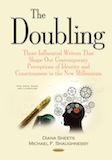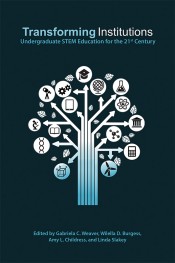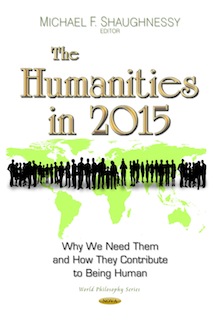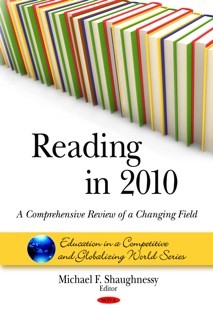What's Memoir Got to Do with It? The 2012 Presidential Election: Fiction Versus Reality, Part 1, Obama
Copyright © 2012 by Diana E. Sheets
The 2012 campaign for the presidency hinges on two different concepts of narrative, one centered upon the carefully crafted persona of the candidate as exemplified through personal stories founded on the fiction of memoir—Barack Obama—the other based upon a sustained policy argument for restoring America’s economic and political strength steeped in reality—Mitt Romney. If the former is Democratic and feminized, based on a misrepresentation of racial identity and saturated in solipsism, the latter is Republican and masculine, founded on policy prescriptions for strengthening our economic and global leadership.
At the heart of these differences, is a perception of who we are as a people and how this shapes our vision of government. In the feminized worldview held by Democrats, it is important that other nations, other people, like us. Power trends toward persuasion or “soft power,” demonstrating our concern for others—empathy—and manifesting our essential goodness through ameliorative social justice (that is, redistribution of assets from the rich to the needy). Force or “hard power” is exerted with reluctance only for brief periods to punish or repel “bullies.” By this means Democrats hope that America and its values will be loved by everyone. This feminized expectation is based on shared governance, the assumption that power should be equitably exercised by nations and peoples around the world. It is founded on the demotic (of the people) rather than the hieratic (the sacred or ruling elites).
In the masculine worldview embraced by Republicans, human character is flawed. Only through extraordinary will and determination—buttressed by power and force—will righteous justice prevail. Leadership is hierarchical and some standards and values are judged inherently better than others. Accordingly, in history, as in governance, there are winners and losers. Republicans embrace American Exceptionalism, the modern experiment with representative democracy, which was born here, rather than somewhere else in the world, because our social and cultural traditions fostered its inception and nurture it today. Similarly, Republicans believe that our distinctive vision of governance should prevail not only for us but potentially for everyone who cherishes freedom and democracy. Accordingly, they are convinced that failure to pursue the cause of liberty will have catastrophic consequences not only for America but also for the world.
Let’s examine how these narratives are exemplified in the lives and perspectives of Barack Obama and Mitt Romney. But before doing so, let’s look briefly at Bill Clinton’s campaign for the presidency since, in the aftermath of Republican President Ronald Reagan, his highly personalized style of electioneering would shape the nature and character of how Democrats would project their “brand” to the American people.
Beginning with Bill Clinton’s campaign for the presidency in 1992, politics has become super-saturated in the personal. This was demonstrated evocatively in the “Man from Hope” bio-advertisement Clinton narrated, which Democratic consultant Drew Westen characterized as “one of the most effective television commercials in the history of American politics” (The Political Brain, PublicAffairs, 2007, 5). It was introduced at the 1992 Democratic Convention.
The advertisement begins with the camera zooming in on the train station of Hope, Arkansas. We listen as Clinton tells us he was born there and lived with his grandparents in their modest home, his father having died before his birth. We discover he met President Kennedy in 1963 as part of the Boy’s Nation program. We watch as he shakes the hand of that iconic Democratic president. Clinton emphasizes the power of that moment. “And I remember just, uh, thinking what an incredible country this was, that somebody like me, you know, who had no money or anything, would be given the opportunity to meet the president.” This experience, he suggests, motivated him to pursue a career in public service “because I cared so much about people.” Clinton’s efforts (as Governor) in the areas of education and health care, he suggested, helped to create jobs. This led him to believe if he were elected president he could improve “all our people’s lives for the better and bring hope back to the American Dream” (image and transcript available at the Museum of the Moving Image, “The Living Room Candidate: Presidential Campaign Commercials 1952-2008, “Journey,” http://www.livingroomcandidate.org/commercials/1992/journey).
Clinton’s personal story proved so effective that in 1995, already campaigning for the 1996 election, he again inserted his personal narrative into a series of interviews and speeches to bolster his support. Indeed, he mentioned to a reporter for Good Housekeeping Magazine that his unhappy life with his stepfather caused him to become a “loner” and retreat to his imagination in order to create a more satisfying reality (Paul Richter, “Clinton Revives Image of the ‘Man From Hope’ : Politics: It worked in ’92, so voters are being reminded of the President’s modest roots and early adversity to reshape ideas about his character,” Los Angeles Times, Oct 28, 1995, http://articles.latimes.com/1995-10-28/news/mn-62094_1_president-clinton).
That same year Barack Obama would publish his celebrated memoir, Dreams from My Father: A Story of Race and Inheritance (Three River Press, 1995). Here too was a young man whose difficult childhood would motivate him to run for the presidency: an absent father, his mother’s subsequent marriage to an Indonesian, his four years in Indonesia—where his mixed-race background marked him as different from other children—before returning in 1971 at age ten to Hawaii, an ethnically diverse community, to live mostly with his (white) grandparents before later attending colleges on the mainland. As with Bill Clinton, Barack Obama responded to these challenges by turning inward, reinventing himself and his cultural identity through adeptness and willpower by means of creative imagination. The result was a man who fostered an alternative universe of possibilities in the face of adversity, thereby channeling his “otherness” to bring a singularity of opportunity that he would mastermind to enable him to become America’s first African-American president.
But it is the differences in campaign strategies of the two democratic presidents that concern us. If Bill Clinton’s personal narrative was used to gain the emotional support of voters, his 1991 presidential campaign was largely derived from centrist policies that migrated rightward with his 1996 reelection campaign and then shifted even further to the right during in his second term in office.
Whereas Bill Clinton drew upon his personal narrative to enhance his emotional appeal to American voters, his campaign, although steeped in vague, if lofty goals, was, nonetheless, centered upon policies. However, at the core of Barack Obama’s 2008 campaign was his personal story, much of it presented in his memoir, a narrative in which his life is depicted through the twin lenses of race and identity. The story was so powerfully conveyed that Nobel Laureate and Pulitzer Prize Winning novelist Toni Morrison characterized Obama as “a writer . . . in my high esteem,” calling Dreams from My Father “quite extraordinary” (Neda Ulaby in an NPR interview with Ton Morrison, “Tony Morrison On Bondage and a Post-Racial Age,” Tell Me More, December 10, 2008, http://www.npr.org/templates/story/story.php?storyId=98072491).
Nevertheless, the problems begin when a politician writes an impressionistic memoir—short on facts and long of subjective interiority—and subsequently becomes president. For as Obama acknowledges in his introduction, “some of the characters that appear are composites of people I’ve known, and some events appear out of precise chronology” noting that “with the exception of my family and a handful of public figures, the names of most characters have been changed for the sake of their privacy” (Dreams from My Father, xvii). But it’s much more than that. Obama has taken so many liberties with his memoir that it is essentially fiction. Not for nothing does Mark Steyn, writing for the National Review, characterize Dreams from My Father derisively as “Obama’s Great American Novel” derisively subtitling the article “We’re too busy inventing ourselves to be interested in the truth,” http://www.nationalreview.com/articles/303776/obama-s-great-american-novel-mark-steyn#).
Indeed there were so many discrepancies between Obama’s memoir and his actual life that David Maraniss, a sympathetic biographer, was compelled to write Barack Obama: The Story (Simon & Schuster, 2012, Kindle Edition), a counter-narrative that attempts to set the record straight. Nevertheless, his attempts to justify Obama’s story as approximate truth render the biography a Historia Apologética. It begins with a long list of elaborations and correctives to Obama’s family heritage that are in contrast with the vague descriptions in the memoir, as well as a series of assessments for why the impact of the Muslim religion in Obama’s family wasn’t as significant as it appeared. Then, of course, there’s Obama’s very troubled relationship with his mother and father, the failings of his maternal grandfather, and the deliberate mischaracterizations in Dreams from My Father to emphasize the importance of Obama’s racial identity in shaping his character, motivation, and political outlook.
Maraniss acknowledges that Obama’s challenge in writing his memoir was that his black identity wasn’t especially black at all (Barack Obama, Intro., 256-84, Chap. 14, 6946-83, Chap. 17, 9176-98). Rather, his outlook might more accurately be characterized as globally multicultural in keeping with his experience in Indonesia and Hawaii (Chap. 14, 6946-82, Chap. 17, 9178-9201). Particularly during Obama’s undergraduate years at Occidental and, to a lesser degree at Columbia, he often associated with Pakistani students and once even traveled to Pakistan (Chap. 14, 6837-49, Chap. 16, 7934-93). But while in New York, he gradually began to move away from his close association with the Pakistani and International community and, later, his white girlfriends in order to affirm his black identity in anticipation of his future campaign for the presidency (Chap. 9, 4168-94, Chap. 12, 5598-5610, Chap. 16, 7755-66, 8246, 8408-20, Chap. 17, 9109-34, 9176-9198, 9202-9251). Indeed, his stint in community organizing in Chicago, while establishing his bona fides as a progressive, were also a means for Obama to establish and develop his African-American identity that would be essential for paving his way to leadership in the Democratic Party. To that end, it was a pragmatic careerist move (Chap. 18, 9426-39, 10146-68). The memoir is self-consciously constructed to serve as an inspirational narrative for Americans living in a post-civil rights era and to elicit their virtuosity by voting for an African American. For that reason, it becomes essential to frame Dreams from My Father as “a story of race and inheritance” so that Americans can identify emotionally with Obama as the Democratic candidate running for president. Not surprisingly, the bildungsroman memoir and the doppelganger biography both end before Obama begins Harvard Law School, thereby serving as a suitable conclusion before Obama, the politician, enters center stage.
How to deconstruct Dreams from My Father? Here is a narrative resting on two organizing themes—race and identity. However, the memoir is essentially an interior journey layered in consciousness and emotional memory that bears scant relation to reality (see my essay “Storytelling, Memoir, and the 2008 Presidential Election,” http://www.literarygulag.com/blog/show/23). The evidence suggests that Barack Obama’s life was not lived as that of an angry, black man experiencing social injustice and racial intolerance in America (Barack Obama, Chap. 17, 9177-9200), although his memoir might lead you to believe otherwise. His youthful worldview was best characterized as global multiculturalism by virtue of his African-American heritage, his mother’s subsequent marriage to an Indonesian, Obama’s formative years were spent in Jakarta where he attended first a Catholic school and, later, a Muslim school. In both institutions his religious affiliation was identified as “Muslim” (Chap. 9, 4131-44, 4484-4509). Then, he returned to Hawaii where he lived mostly with his grandparents and attended the Punahou School, Hawaii’s most elite preparatory school. While his memoir emphasized his relationship with a black friend Ray, in actuality the character was based on Keith Kakugawa, whose mother was both African American and Native American and whose father was Japanese. Their relationship was not particularly close (Chap. 12, 5422-35).
Obama’s memoir might lead you to believe he was denied a prominent role on the varsity basketball team because he was black. However, there is little evidence that supports this claim (Barack Obama, Chap. 13, 5659-5768). Obama describes one youthful outburst of sullen rage when he learns from his grandfather that his grandmother Toot was nervous about taking the bus to work because of the behavior of a strange, young black man at the bus stop. In anger, Obama flees the home and visits a family friend Frank (Dreams from My Father, 87-91), who in actuality was Frank Marshall Davis (now deceased), an older, disaffected poet and labor activist who had ties to the Communist Party (Barack Obama, Chap. 11, 5060-73). However, even that incident now seems somewhat contrived when we discover that it occurred not as indicated in the memoir during high school, but later during summer vacation, after his first year attending Occidental College in California (Chap. 12, 5904-17). This and the fact that he revised the incident to lessen its significance from the initial book proposal to his final published account (Chap. 14, 6740-52), suggests Obama used the episode more as a literary device to garner support from African Americans and progressives than to expose a foundational trauma in his youthful development.
Indeed, the discrepancies between the memoir and the life accumulate. Obama’s African grandfather wasn’t tortured in Kenya and jailed because of his support for the Mau Mau rebellion against British colonialists (Barack Obama, Chap. 2, 1252-76, 1427-75; Chap. 9, 4324-35). His step-grandfather didn’t die fighting the Dutch troops in Indonesia’s struggle for independence, nor did the family lose their house or fortune (Chap. 9, 4298-4311, 4324-35).
Then, there was the alleged Life Magazine article that Obama described in his memoir as deeply disturbing. The story was reputedly about a black man who tried to chemically lighten his skin to become whiter. However, that article has never been found (Barack Obama, Chap. 9, 4571-84). The memoir describes his breakup with a white girlfriend following their argument about an edgy, angry play written by a black playwright. But interviews with Genevieve Cook, the Australian upon whom Obama based that account, suggest they never attended any play by a black playwright, nor would she have been opposed to its purported content. Maraniss is sympathetic to Obama’s claim that the incident did occur, but with another white girlfriend, in another city, at a different time, although no concrete evidence is provided to support this account (Chap. 17, 9200-25).
In actuality, Obama’s sojourn toward adulthood resembles a fiction writer’s solipsistic search for identity, rather than a racial quest for authenticity (Chap. 16, 777-90, 7790-7802, 7923-34, 8347-72, 8385-97, Chap. 17, 8877-8915, 9178-9201). His friends were from Pakistan, from Hawaii, from all over the world, rather than typically African American. His community organizing in Chicago seemed more calculated to garner experience in the black community on route to a carefully staged run for the presidency than a serious commitment to the neo-Marxist cause of revolution (Chap. 18, 9845-68, 10146-59). Nevertheless, the Chicago stint in political organizing gave Obama his bona fide progressive credentials.
Dreams from My Father is soulful verse steeped in aspiration and tragedy. Only once, when Obama was ten, did he have a meaningful encounter with his father. Their brief interaction, over the course of a month in Hawaii, was a dismal failure except for demonstrating Obama Sr.’s supreme confidence, a confidence symptomatic of grandiosity that presaged his downfall.
I reach back into my memory for the words of my father, the small interactions or conversations we might have had. . . . Images, and his effect on other people. For whenever he spoke—his one leg draped over the other, his large hands outstretched to direct or deflect attention, his voice deep and sure, cajoling and laughing—I would see a sudden change take place in the family. Gramps became more vigorous and thoughtful, my mother more bashful; even Toot, smoked out of the foxhole of her bedroom, would start sparring with him about politics or finance, stabbing the air with her blue-veined hands to make a point. It was as if his presence had summoned the spirit of earlier times and allowed each of them to reprise his or her old role; as if Dr. King had never been shot, and the Kennedys continued to beckon the nation, and war and riot and famine were nothing more than temporary setbacks, and there was nothing to fear but fear itself.
It fascinated me, this strange power of his, and for the first time I began to think of my father as something real and immediate, perhaps even permanent (Dreams from My Father, 66-7).
For the son the presence of the father was revelatory since other adults became smaller and diminished in supplication to Barack Sr. This demonstrated to his son that one’s path to success must be won through confidence. Here would be Obama Jr.’s great epiphany and for us as readers and Americans our greatest cause for concern. For Barack Sr. the path from success to ruin was filled with wreckage. Multiple wives whose lives he made sure were filled with pain. Multiple sons who today still bear lifelong scars. Barack Sr.’s alcoholism caused him to kill a friend in a drunk-driving episode. That fatality was followed by several more alcohol-related crashes. We witness a man for whom confidence became a weapon of destruction leading to the ruin of not just one life but many.
Barack Obama, to his enormous credit, has thus far avoided the catastrophic failings of Barack Sr. Nevertheless, the trait of grandiosity is exhibited in both father and son. The question must be posed: Will the son’s supreme confidence in his political wisdom lead America out of its economic doldrums and the global crisis in leadership to a better future? Or will the catastrophic demons of the father—let us not forget the title of the memoir, Dreams from My Father—be transmitted to the son with dire political consequences to America, if not the world?
Certainly, there is little in Obama’s parental influences to give us confidence. Obama’s mother Stanley Ann, whom anyone will recognize as the prototype of the modern, ineffectual academic, abandoned her son for an unfulfilled career as an anthropologist. Neither Grandfather Stanley, with whom Obama lived, nor his daughter Stanley Ann was a responsible or functional adult. Thus, of the four parental influences, only Toot, Obama’s maternal grandmother—who in effect supported husband, daughter, and grandson by working tirelessly at a bank to overcome obstacles and succeed in becoming a Vice President—can be seen as a substantive, grounding influence in his life. Then again, maybe not if we accept Obama’s fleeting description of her as a possible racist in the memoir, although clever writer and politician that he is, he leaves room for ambiguity since poet sage Frank, the radical, cautions young Obama not to dismiss the real potential threat lurking for a vulnerable white woman at a bus stop if she has the misfortune to be in the presence of an angry, disaffected black man.
How could this beautifully crafted memoir of an African American’s search for his identity be so devoid of truth, of authenticity, of honesty? And what does this suggest about our president’s character and leadership? Will Obama transcend his tragic family legacy to bring honor to his nation? Or will he, like his father, by means of supersized arrogance and folly, lead America down the path of ruin? If a memoir be the measure of the man, let me suggest we have grave cause for concern.









